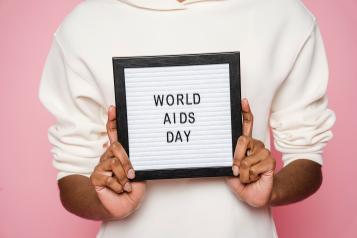Dry January. Are you in?

The start of a new year often traditionally sees many of us seeking ways to improve our health and boost our energy levels after the Christmas indulgences. Most of us are also trying to save money.
Give your body and your wallet a break with a dry January.
Let’s look at the benefits
Short term gains
-
Fresher looking skin
-
Feeling clearer and brighter in the morning
-
Saving money
-
Being less tired and more energetic
Long term benefits
-
Better mood, memory, concentration and quality of sleep
-
Help with managing your weight
-
Lower blood pressure
-
Lower your cholesterol
-
Reduce your risk of stroke, hypertension, cancer and liver disease
How many calories are actually in alcohol?
A standard glass of wine can contain as many calories as a piece of chocolate, and a pint of lager has about the same number of calories as a packet of crisps.
Below is some information if you are looking to manage your calorie intake and understand how drinking less alcohol can assist with that.
Liquid Calories:
Drink Calories (kcal) Estimated food equivalent standard 175ml glass of 12% wine 133kcal 3 Jaffa Cake biscuits pint of 5% strength beer 239kcal 1 standard size Mars Bar 50ml glass of 17% cream liqueur 153kcal one standard size Wagon Wheel standard 330ml bottle of 4% alcopop 172kcal 2 chocolate digestive biscuits double measure (50ml) of 17.5% fortified wine 77kcal 10 jelly babies double measure (50ml) of 40% gin 95kcal 1 standard size Milky Bar
Ideas to help you cut the booze
You don’t necessarily have to go teetotal to feel the benefits. Even a few drink free days a week or swapping to lower strength drinks are great ways to head in the right direction.
Practical next steps:
-
Try the Drink Free Days app to set yourself a weekly unit target and have support sticking to it.
-
If one week you go over your limit, don’t stop trying! – next week is a fresh start.
-
Choose drinks that are lower in alcohol. There are many lighter beers – under 4% ABV and so many choices of non-alcoholic drinks now
-
Going out for drinks is not the only way to see friends. You could watch a film, meet up for breakfast, grab a coffee or more opt for some more active options like going for a walk, bowling
-
Sticking to a budget for your alcohol is a good way to drink less. If you are going out, try taking only the exact cash, or set up a spending alert on your card.
-
Avoid participating in rounds of drinks. Being involved in rounds makes it easy to end up drinking more than you planned. Don’t feel like you have to say yes to a drink just because someone else is buying.
-
If a drink is a way you handle boredom or stress, try finding something else to do instead. Exercise is a great stress reliever, and simple things like cleaning, a new hobby or DIY can be a good way to occupy your mind and your body.
There is plenty of help available
In Medway, there is support avaialble near you. For all the information click here
-
Drinkline is the national alcohol helpline. If you're worried about your own or someone else's drinking, you can call this free helpline on 0300 123 1110 (weekdays 9am to 8pm, weekends 11am to 4pm).
-
Alcoholics Anonymous (AA) is a free self-help group. Its "12 step" programme involves getting sober with the help of regular support groups.
-
Al-Anon Family Groups offers support and understanding to the families and friends of problem drinkers, whether they're still drinking or not. Alateen is part of Al-Anon and can be attended by 12- to 17-year-olds who are affected by another person's drinking, usually a parent.
-
We Are With You is a UK-wide treatment agency that helps individuals, families and communities manage the effects of drug and alcohol misuse. If you are over 50 and worried about your drinking, call 0808 8010 750
-
Adfam is a national charity working with families affected by drugs and alcohol. They have an online message board and a database of local support groups.
-
The National Association for Children of Alcoholics (Nacoa) provides a free, confidential telephone and email helpline for children of alcohol-dependent parents and others concerned about their welfare. Call them on 0800 358 3456
-
SMART Recovery groups help people decide whether they have a problem, build up their motivation to change, and offer a set of proven tools and techniques to support recovery.
Tell us your story
Do you get the support that you need?
What would make your experience better?
Tell us your story and we can help improve the service for someone like you.


